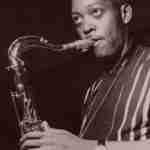Ever go to the practice room with a plan of what you want to get done, only to realize that an hour has passed and you’ve just muddled around? Playing your instrument is fun and it is easy to get distracted by the joy you get from simply playing. No reason to totally give up those free playing sessions, just save them for later in your practice routine once you’ve covered the material you want learn.
Combining two concepts, timeboxing and spaced learning, you can be sure to stay on task and achieve noticeable gains from your effort.
Timeboxing
Timeboxing means assigning an allotment of time to work on a given subject or task, rather than working until completion. This process is especially effective for long term on-going projects, hence it’s great when applied to jazz improvisation practice.
Ok, now this may sound a bit excessive, but I promise it works really well. Buy a countdown timer and set a time for how long you are going to practice something. Using a countdown timer might seem ridiculous, but here’s why I think it works:
- It forces you to estimate and assign how much time you are going to spend on something.
- It forces you to pick precisely what you are going to work on for that time allotment.
- For some reason (maybe New Years Eve parties?) we love counting down much more than counting up. Perhaps it’s the idea of getting closer to the finish line.
Timeboxing and using a countdown timer:
- Help combat procrastination
- Force you to articulate your goals
- And allow you to structure your time to feel a sense of accomplishment
All good things 😉
Spaced Learning
The goal of spaced learning is to take short term memories and convert them into long term memories in a small period of time. It’s something that I’ve played with quite bit and it seems to work fairly well, especially when learning small bits of information.
The idea is that you have three active time segments when you are learning and a ten minute break in between each segment where you focus on something different entirely. In fact, in controlled experiments of spaced learning, the participants are instructed to run during these ten minute breaks to help get there mind off the learning material.
To clarify: one learning session, 10 min. break, second learning session, 10 min. break, final learning session.
Each active learning session is comprised of the same information, hence it works great for working on jazz vocabulary (or for that matter, any vocabulary. This technique is becoming popular for learning languages in shorter amounts of time). For a small bit of info like a line, I would probably set my active learning sessions to as little as 5 minutes a piece. Pick a line that you love, set your countdown timer, and go to town.
Just as with timeboxing, spaced learning and a countdown timer will keep you focused and help you absorb new information in an efficient manner.
When you can’t get focused…
So you’ve been in the practice room for a while now and you’ve accomplished nothing. When you can’t get focused first STOP. Simple. Just stop what ever it is you’re doing. In these situations you first have to clear your head and then recalibrate yourself. Often, I like to counter extreme lack of focus with extreme focus of one area.
It’s a really simple concept. Can’t get focused? Pick one little tiny thing and work on it till you own it. I’ve found this works well in these situations because I may not have the mind power at the moment to put together a full plan of what I need to work on, but I can always pick one thing that needs a lot of work. Then set your countdown timer and you’re back on track.
Focused practice sweetens up everything else
By focusing, planning out what your practicing with the techniques described above, and using your countdown timer, you’ll have a super productive time. But what’s great about it is that it makes the free-playing parts of your practice much more enjoyable.
So after you’ve done the timed part of your practice, you can choose to to just play, no timer, no constraints at all and it will feel extra great knowing you just accomplished a bunch of stuff. You’ll play much better when you’re just messing around now and you won’t be wasting any of your valuable practice time.










